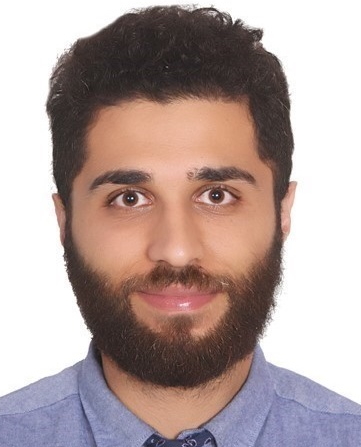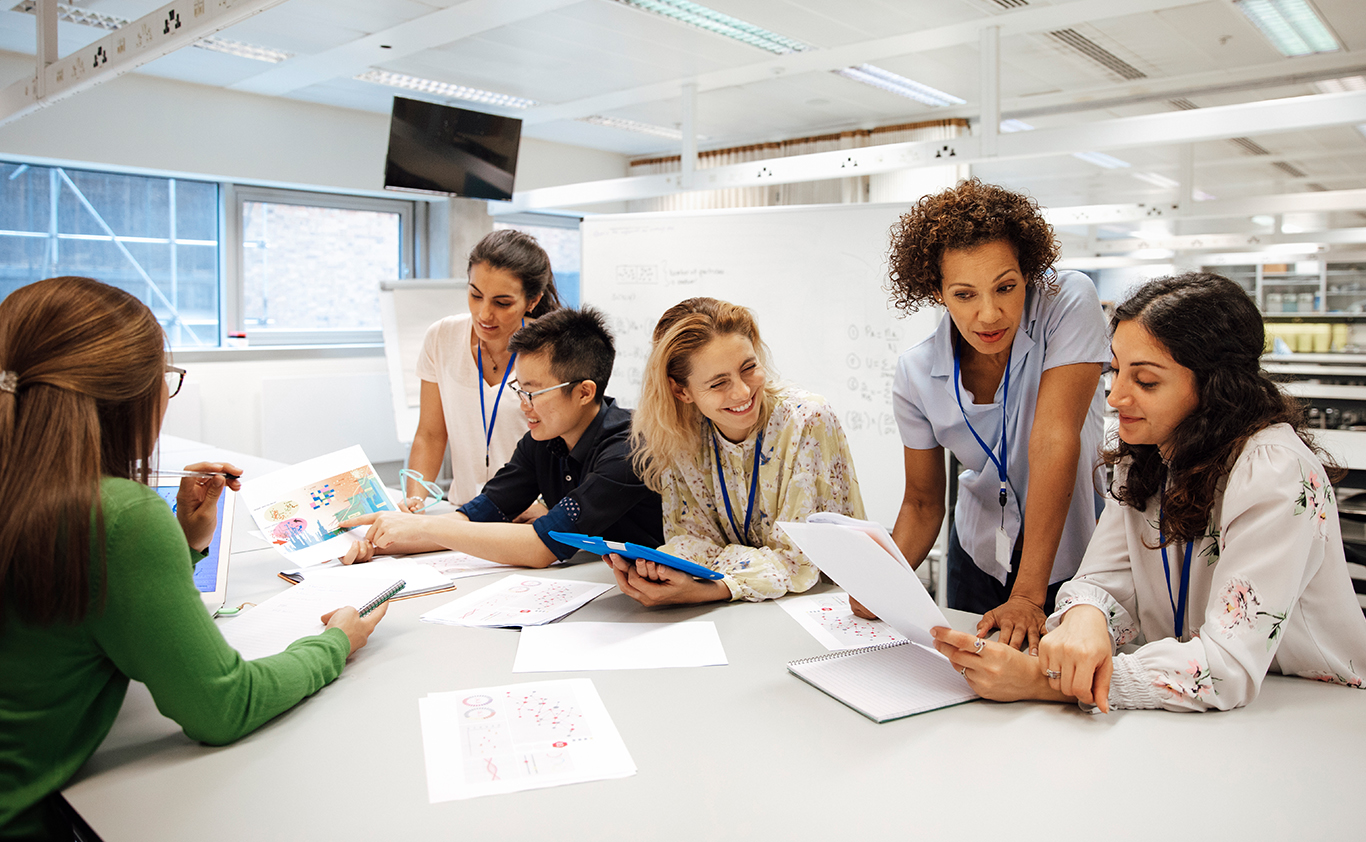We interviewed some of our open access authors to discuss their research, what they’ve achieved and their thoughts on publishing open access.

Dr Mohammed Aboramadan
Dr Mohammed Aboramadan of The University of Insubria, Italy, published his article “The effect of green HRM on employee green behaviours in higher education: the mediating mechanism of green work engagement” through the open access route to make his research accessible to everyone.
'I take every opportunity to get published as open access. Italy, the place where I work, has developed a national agreement with Emerald till 2024 to enable researchers to publish as open access. This is a great opportunity, and I will keep publishing my work as open access with Emerald thanks to this national agreement'.
Read the interview
Can you tell us about your research (The effect of green HRM on employee green behaviours in higher education: the mediating mechanism of green work engagement)?
This research investigated the effect of green human resources management practises on pro-environmental behaviours in higher education. This research provided important insights to higher education administrators on the relevance of green human resources management practises and their role in boosting pro-environmental behaviours such as green work engagement, in-role green outcomes, and green innovative work behaviour.
What initially prompted you to research this topic?
Researchers around the world are currently paying significant attention to the research topic of green management practices. The current challenges of meeting green and ecological demands generate implications for higher education institutions to reinforce such practices. Although, nowadays, this topic is being largely researched, less attention has been paid to higher education institutions. Thus, it was of utmost importance to examine the effect of green HRM practices on employees' behaviours in an academic context.
Who did you want to reach with your research? Who were the key beneficiaries?
This research sends a message on the significance of Green HRM to higher education administrators and service-based sectors in general.
Do you think your research reached your intended audience?
I think this research was successful in conveying a message to the targeted audience. This is because the research is widely cited by researchers who study service-based organisations such as those of higher education institutions.
What do you hope to achieve with your research?
I hope that this research can become an empirical reference to higher education policymakers. I wish that higher education administrators give attention to the findings of this research in order to promote green-work related behaviours among academics and administrative staff alike.
Your work was published in The International Journal of Organizational Analysis through the open access route as part of a transformative agreement. How do you think being supported to publish openly has helped your work?
Nowadays, research on pro-environmental management practises is a hot topic, especially in light of the focus of national agendas on green and sustainability practises. Therefore, being supported by an open access agreement enabled this research to reach a wide audience in several parts of the word, and mainly for those who have no access to academic articles.
What do you feel are the biggest benefits of publishing your research openly?
This article receives a lot of citations. I am glad to personally experience how open access can help researchers make their research reachable to everyone.
What is the focus of your next research topic?
I envision my future research to dig deeper in pro-environmental management especially among service-based organizations. The unifying theme of my future research will be the construction of a novel and creative model to be empirically tested in green management. It could be interesting to study green HRM practices based on cross-national data (developed vs developing countries).

Dr Alexander P. Henkel
Dr Alexander P. Henkel of the Open University of the Netherlands, published his article 'Robotic transformative service research: deploying social robots for consumer well-being during COVID-19 and beyond' as open access.
Read the interview
Can you tell us about your research (Robotic transformative service research: deploying social robots for consumer well-being during COVID-19 and beyond)?
This project is part of a research line on how consumers experience and react to service provided by AI and, in particular, social robots. In this article, we considered the current Covid-19 pandemic and applied a trans-disciplinary perspective on synthesizing empirical evidence on how interactions with social robots can contribute to different dimensions of consumer well-being as a function of experienced social isolation. The resulting typology of robotic transformative service features four types: entertainer, social enabler, mentor, and friend. It was also our aim to extrapolate this perspective to a general context and establish a foundation and initial research agenda for research on transformative robotic service research that explicitly addresses how the well-being of individuals is shaped when interacting with social robots in the marketplace.
What initially prompted you to research this topic?
I am affiliated with the Centre for Actionable Research of the Open University (CAROU) in the Netherlands where we apply a strong focus on interdisciplinary collaboration to address societally relevant research questions. We are situated at the Brightlands Smart Services Campus with many stakeholders interested in the application of AI to innovate their services. The study of social robots in a customer service role was therefore a naturally evolving research topic, long before the Covid-19 pandemic came about. However, it was only this development that stimulated our research team to apply the particular well-being lens as a function of consumers’ social isolation which appeared to become so important in the aftermath of governmental measures to fight the spread of the virus. At the same time, it provided a promising opportunity to leverage our well-being perspective in a meaningful societal context.
Who did you want to reach with your research? Who were the key beneficiaries?
Our primary target group was the wider academic community that is interested in studying social interactions of humans and robots. However, the very context of this conceptual paper also had more practice-oriented target groups in mind; service consumers, service providers, and robot developers. The typology featured in the paper was meant to guide these different stakeholders in identifying and developing the most appropriate social robot type for advancing the well-being of vulnerable consumers in social isolation during and beyond the current pandemic.
Your work was published in The International Journal of Organizational Analysis through the open access route as part of a transformative agreement. How do you think being supported to publish openly has helped your work?
Nowadays, research on pro-environmental management practises is a hot topic, especially in light of the focus of national agendas on green and sustainability practises. Therefore, being supported by an open access agreement enabled this research to reach a wide audience in several parts of the world, and mainly for those who have no access to academic articles.
Do you think your research reached your intended audience?
This question does not allow for a straightforward answer. Judging by traditional performance metrics, including citations (i.e., reaching researchers) and public media appearances (i.e., reaching the public), the article certainly met and even exceeded our expectations. Our robotic transformative service research lens has potentially stimulated, or at least broadened, the perspective of some of the citing studies. But what I am personally probably most enthusiastic about is the fact that the latter comprise articles published in different research domains which can certainly also be attributed to the open access nature of our paper. Of course, it is great to know that results have also been disseminated outside of academia. However, it is difficult to judge its real impact here.
What do you hope to achieve with your research?
First and foremost, I hope that our paper will play a small part in spurring many more research projects on transformative robotic service research in the future. This way, its societal impact on when and how social robots can and should be deployed in service interactions with the well-being of individuals (i.e., consumers and employees) in mind could be further intensified.
What do you feel are the biggest benefits of publishing your research openly?
The biggest benefit of publishing open access for this study was the potential reach of the paper within academia and beyond.
What is the focus of your next research project?
I am currently collaborating on a series of projects that are thematically tied to this one and all revolve around the implications of replacing or augmenting service employees with AI, in particular service bots. As a direct follow-up to the paper on robotic transformative service research, we are currently working on a trans-disciplinary, systematic review on deploying social robots in service contexts. We hope that this review will help to further unite researchers from different backgrounds who are interested in studying service robots take stock of what we know and move forward in a more concerted effort.

Are you eligible for an open access publishing voucher?
We partner with libraries and consortia to offer authors prepaid vouchers to publish their work openly.
Unsure which route to take?
Please fill in the form opposite and one of our team will be in touch to discuss which open access option is right for you.


